‘Loot’ Review: Spreading the Wealth
Maya Rudolph makes being mega-rich look fabulous as a benevolent but clueless billionaire trying to do good deeds on 'Loot.'
By André Hereford on June 24, 2022 @here4andre

It’s about damn time actress-comedian Maya Rudolph got to flex her considerable talents as the lead of her own TV series. Long a star supporting player during seven seasons on Saturday Night Live, as a voice actor on various animated shows, and in feature films from Bridesmaids to Grown Ups, the four-time Emmy winner now finds herself front-and-center, and in full flow, on the new Apple TV+ comedy Loot (★★★☆☆).
Created by Matt Hubbard and Master of None co-mastermind Alan Yang, Loot isn’t as consistently well-realized right out of the gate as, say, Hacks or Russian Doll. But it’s several shades of funny, uncommonly compassionate, and takes big chances — not the least of which is building a mainstream comedy around a jet-setting billionaire in this gloomy economy.
Rudolph’s stylish, new-money socialite Molly Novak isn’t a bad person, per se. She’s superficial and absurdly out-of-touch, firmly ensconced in the opulent, mega-yacht and supercar life she shares with tech-bro husband John (Adam Scott), who also isn’t exactly evil. He is a dog, though, as revealed swiftly — and, for Molly, in humiliatingly public fashion — in the pilot episode.
Their scandalous, expensive divorce leaves her with $87 billion and turns her into a media hot topic, à la Melinda Gates or Mackenzie Bezos. The betrayal also sends her spiraling. Molly, who supported John in every way as he built his billion-dollar company, was so thoroughly invested in their marriage and so comfortable in their wealth, that she neglected to cultivate her own passions, outside of a stunning wardrobe.
Yang, directing the first two eps of the ten-episode season, captures in one dreamily serene montage a sense of the world passing Molly by, each day bleeding into the next. She’s still attended by a hilariously large household staff in her enormous mansion. You won’t pity her, but Rudolph will have you rooting for her. Like Master of None, Loot delicately balances the poignant and the absurd, subtle asides and broad slapstick.
Rudolph, who can ham it up with the best of ’em (or the worst, if we’re talking about some of her Grown Ups castmates) mostly plays Molly at a credible level of amusingly pissed-off and heartbroken. She only goes full zany when it’s called for, as in a fun post-divorce sequence of Molly bouncing around the international party scene with gay aide-de-camp Nicholas (a snarky Joel Kim Booster).
Molly wakes up to the fact that she’s been moving without purpose, and much like billionaire divorcées Gates and Bezos, she finds purpose in running her charitable foundation. First, she has to be informed that she even has a charitable foundation, a solid joke that sets up the show’s fish-out-of-water premise, as Molly, with Nicholas in tow, dedicates herself to being a team player at her namesake foundation.
Blissfully unaware of how unaware she is, Molly initially clashes with the foundation’s intensely focused director, Sofia, portrayed by Pose star Michaela Jaé Rodriguez. Sofia is a driven hard-ass, who, quite obviously, will warm to Molly eventually. Everybody else in the office falls for her immediately, including gregarious Howard (comedian Ron Funches), a distant cousin she barely remembers, and hangdog single dad accountant Arthur (Nat Faxon), who develops a crush on her.
The writers do little to disguise the plot turns that come along rather expectedly, and it takes a few episodes before the ensemble locks into a steady, snappy rhythm. And mid-season feels repetitive in portraying Molly’s gaffe-prone foibles as the face of the foundation.
Once the show commits to storylines for characters other than Molly, it starts to feel like we’re going somewhere. And throughout the entire season, in broad strokes and witty details, Loot astutely emphasizes the ways that money can change everything, or, conversely, doesn’t change anything.
The show has it both ways, portraying how intoxicating private jets and private chefs can be, while making the point that Molly’s privileged, “frictionless” life, as Sofia calls it, bears no resemblance to how most people live. And maybe, while so many suffer with so little, no one person should have so much. Yet, what can any one person do but try to be better?
Molly Novak, celebrity billionaire, is not just like us, but for her, like anyone watching, there’s a world to gain by giving. She stumbles often on her path of learning to be more generous, but, thanks to Rudolph’s grace and comic panache, gets up every time looking like a million bucks.
New episodes of Loot are available for streaming every Friday on Apple TV+. Visit www.apple.com/apple-tv-plus.
More from Metro Weekly:
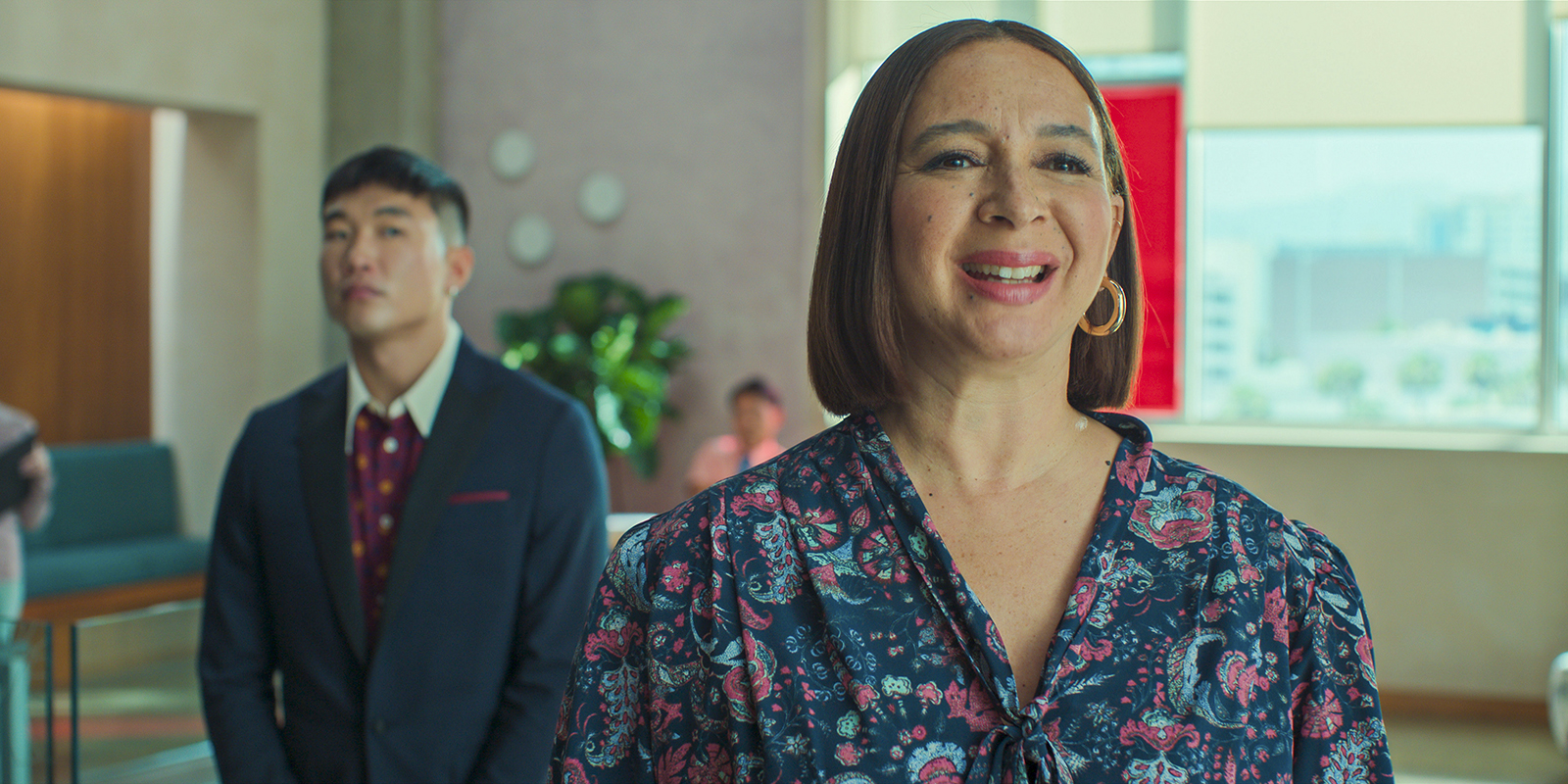
Bugonia Review: Yorgos Lanthimos’ Sharp, Surreal Stinger
Emma Stone and Jesse Plemons buzz through a wickedly funny thriller of abduction, alienation, and apiculture.
By Zach Schonfeld on November 2, 2025
You've heard of Chekhov's Gun. Now consider "Chekhov's Bees." If a backyard apiary of bees is introduced at the beginning of the movie, the bees will be whipped into a frenzy by the film's end, terrorizing some poor character.
Bugonia, the fiendishly funny new nightmare from Greek filmmaker/provocateur Yorgos Lanthimos (Poor Things, The Lobster), bears out this theory. The bees belong to our troubled hero, Teddy Gatz (a shaggy-bearded, greasy-haired Jesse Plemons), a conspiracy theorist and amateur beekeeper who lives in an old house with his young, neurodivergent cousin, Don (newcomer Aidan Delbis). Teddy spends his days working a menial warehouse job and his nights traveling down YouTube rabbit holes and obsessively developing theories involving Andromedan aliens who intend to destroy humanity.
Jay Kelly Review: Capturing the Unreality of Fame
Noah Baumbach's wistful Hollywood satire "Jay Kelly" questions the price of success in the motion picture industry.
By Zach Schonfeld on November 26, 2025
About halfway through Jay Kelly, Noah Baumbach directs a love scene. I don't mean that there is a sex scene (those rarely appear in Baumbach's cinematic universe, except the mortifyingly awkward kind). I mean that Baumbach himself appears onscreen, in a wink-nod cameo, as a fictitious filmmaker, choreographing an intimate scene between our hero, Jay Kelly (played in flashback by Charlie Rowe), and an actress playing his wife (Eve Hewson), who becomes his real-life paramour, though not real real-life, but -- ah, who's to say what's real anyway?
Baumbach has never been the sort of director to place himself onscreen, but the indulgence fits with a certain metatextual thread in Jay Kelly, a wry Hollywood satire and wistful character study infused with the director's signature familial discord. Here is a film about making sense of your life when, as Jay puts it, "all my memories are movies"; a film about sifting through the thin thread that separates public persona and private identity. How much of your life is real when millions of people know and adore you for playing someone else? And what about the real family you neglected to pursue those celluloid dreams -- is it too late to make amends?
Ragtime Review: Lincoln Center Revival Is a Stirring Triumph
Lincoln Center’s Ragtime revival dazzles with powerhouse vocals and a timely take on race, class, and the American Dream.
By Ryan Leeds on November 9, 2025
Given how often today's news outlets distort the truth or report outright lies, it's almost comical that E.L. Doctorow's 1975 novel Ragtime was once dismissed by The New Yorker's editor William Shawn. Because Doctorow's tale, set in the early twentieth century, wove real historical figures into fictional lives, Shawn refused to publish a full-length review, calling the book "immoral."
Now, the musical adaptation returns with forceful, spectacular splendor at Lincoln Center's Vivian Beaumont Theatre. And this second revival of the beloved story arrives on Broadway at just the right time.
Support Metro Weekly’s Journalism
These are challenging times for news organizations. And yet it’s crucial we stay active and provide vital resources and information to both our local readers and the world. So won’t you please take a moment and consider supporting Metro Weekly with a membership? For as little as $5 a month, you can help ensure Metro Weekly magazine and MetroWeekly.com remain free, viable resources as we provide the best, most diverse, culturally-resonant LGBTQ coverage in both the D.C. region and around the world. Memberships come with exclusive perks and discounts, your own personal digital delivery of each week’s magazine (and an archive), access to our Member's Lounge when it launches this fall, and exclusive members-only items like Metro Weekly Membership Mugs and Tote Bags! Check out all our membership levels here and please join us today!
The Magazine
-
Most Popular
 Seattle’s World Cup “Pride Match” Pits Two Anti-Gay Nations
Seattle’s World Cup “Pride Match” Pits Two Anti-Gay Nations  National LGBTQ Task Force Brings Creating Change to D.C.
National LGBTQ Task Force Brings Creating Change to D.C.  Five Major LGBTQ Groups Endorse Scott Wiener for Congress
Five Major LGBTQ Groups Endorse Scott Wiener for Congress  Equality PAC Endorses Erik Bottcher for Congress
Equality PAC Endorses Erik Bottcher for Congress  Florida Man Charged With Attempted Murder for Shooting Neighbor
Florida Man Charged With Attempted Murder for Shooting Neighbor  A Few Feet Away Review: When Grindr Becomes an Addiction
A Few Feet Away Review: When Grindr Becomes an Addiction  Capital Pride 2026 Moves to June 20-21, Citing Safety Concerns
Capital Pride 2026 Moves to June 20-21, Citing Safety Concerns  Vandal Defaces Girl Scouts’ Rainbow Bridge Memorial in Reno
Vandal Defaces Girl Scouts’ Rainbow Bridge Memorial in Reno  Trump Administration Deadnames Rachel Levine on HHS Portrait
Trump Administration Deadnames Rachel Levine on HHS Portrait  RuPaul’s Drag Race Season 18: Meet the New Queens
RuPaul’s Drag Race Season 18: Meet the New Queens
 Five Major LGBTQ Groups Endorse Scott Wiener for Congress
Five Major LGBTQ Groups Endorse Scott Wiener for Congress  Equality PAC Endorses Erik Bottcher for Congress
Equality PAC Endorses Erik Bottcher for Congress  National LGBTQ Task Force Brings Creating Change to D.C.
National LGBTQ Task Force Brings Creating Change to D.C.  Seattle’s World Cup “Pride Match” Pits Two Anti-Gay Nations
Seattle’s World Cup “Pride Match” Pits Two Anti-Gay Nations  Capital Pride 2026 Moves to June 20-21, Citing Safety Concerns
Capital Pride 2026 Moves to June 20-21, Citing Safety Concerns  Trump Administration Deadnames Rachel Levine on HHS Portrait
Trump Administration Deadnames Rachel Levine on HHS Portrait  Russia Blocks Roblox for Spreading "LGBT Propaganda"
Russia Blocks Roblox for Spreading "LGBT Propaganda"  Tenor Albert Lee on Queer Roots in ‘The Delta King’s Blues’
Tenor Albert Lee on Queer Roots in ‘The Delta King’s Blues’  Sauna Review: A Gay-Trans Love Story That Falters
Sauna Review: A Gay-Trans Love Story That Falters  Lesbian Teacher Branded a "Witch" Wins $1.2 Million Settlement
Lesbian Teacher Branded a "Witch" Wins $1.2 Million Settlement
Scene
Metro Weekly
Washington's LGBTQ Magazine
P.O. Box 11559
Washington, DC 20008 (202) 527-9624
About Us pageFollow Us:
· Facebook
· Twitter
· Flipboard
· YouTube
· Instagram
· RSS News | RSS SceneArchives
Copyright ©2025 Jansi LLC.








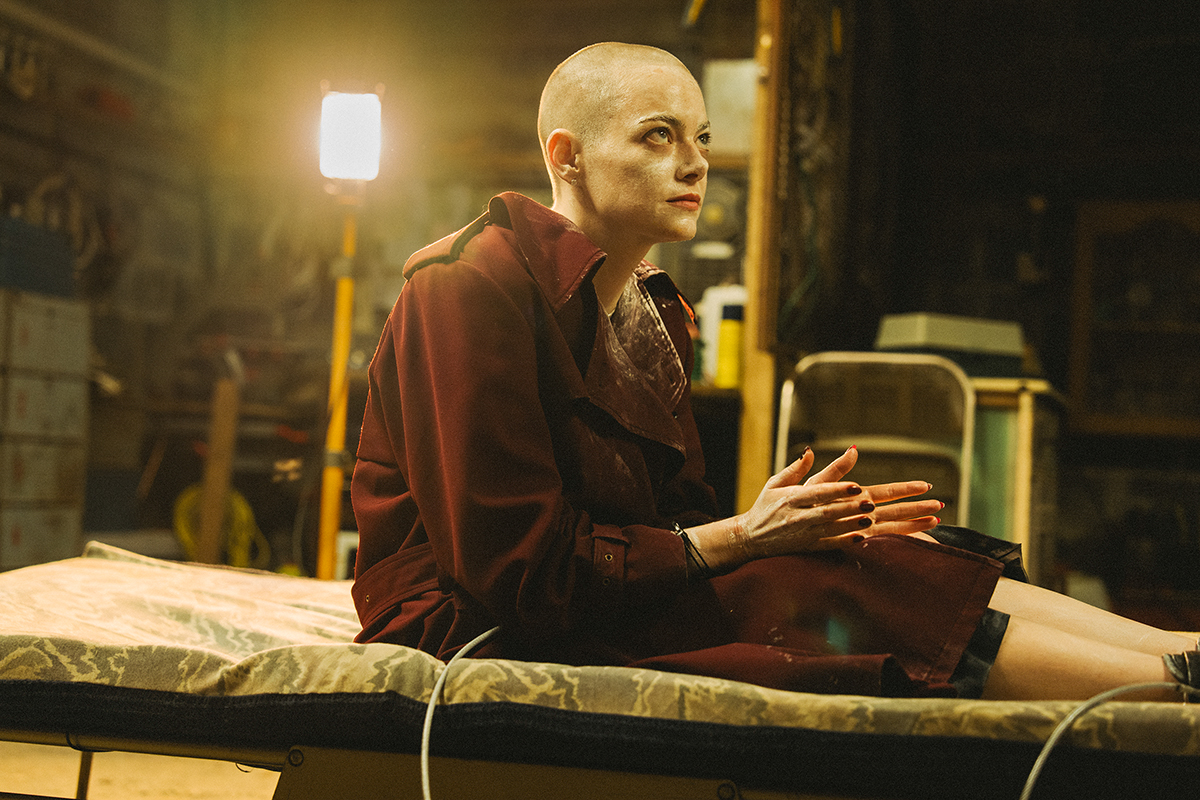

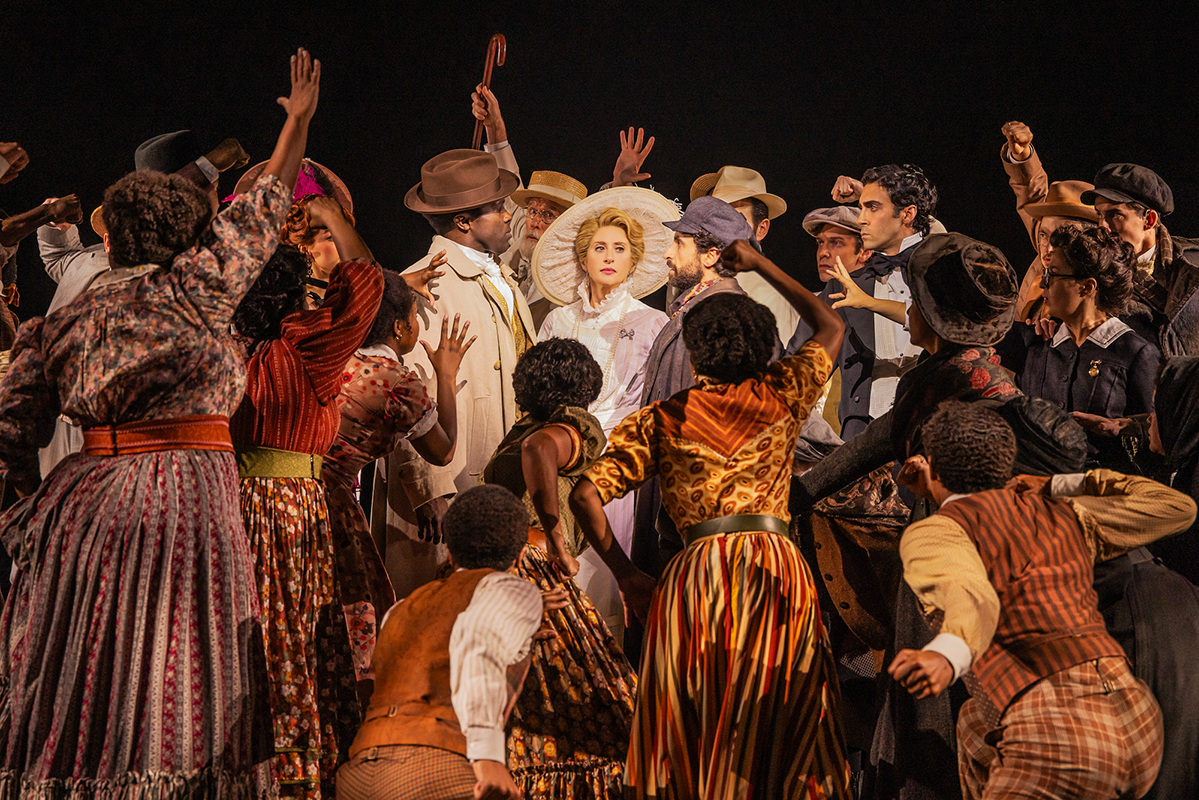
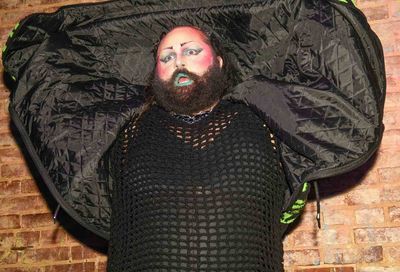
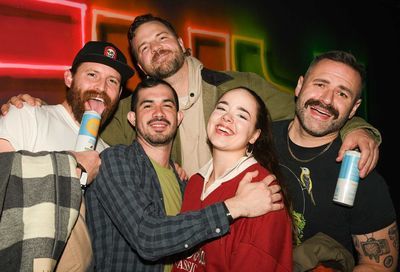
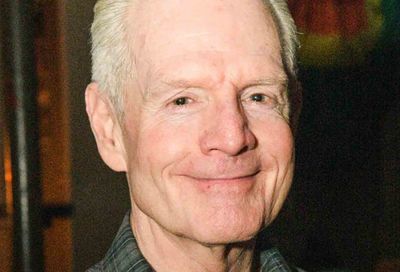
You must be logged in to post a comment.